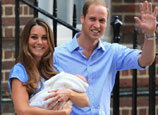
BEIJING, July 24 (Xinhua) -- Strong resolution and various channels of supervision are needed to prevent any violations of a five-year ban on the construction of new government buildings.
On Tuesday, the General Office of the Communist Party of China (CPC) Central Committee and the General Office of the State Council jointly issued a directive calling for an across-the-board halt to the construction of new government buildings, training centers or state-owned hotels in the coming five years.
The directive is part of efforts to improve CPC-people ties and maintain the image of the Party and government amid an ongoing frugality campaign.
As similar bans have been issued in the past, the public have a good reason to worry about whether the new directive can be effectively implemented by authorities at all levels and whether grand buildings will be constructed after the ban is lifted.
According to government statistics, the central authorities have issued 10 documents to curb the construction of government buildings in the past 25 years.
These documents have largely helped stem the construction of extravagant government buildings. However, such buildings have been exposed from time to time during the period, regardless of the bans, thus arousing strong public disapproval.
Wang Yukai, a professor with the Chinese Academy of Governance, said the ban this time is more strict and detailed, removing loopholes that have allowed local-level governments to circumvent central government orders.
Authorities should investigate how extravagant buildings came about amid strict approval procedures to prevent such cases.
The new directive strictly forbids the construction, purchase, restoration or expansion of office compounds that is carried out in the guise of building repair or urban planning.
It also bans CPC and government organizations from receiving construction sponsorship or donations, as well as collaborating with enterprises, in developing building projects.
Such detailed and specific regulations reflect the determination of the central leadership to crack down on extravagance and corruption through a long-term mechanism.
Meanwhile, the supervision of various channels should be encouraged to ensure the effectiveness of the ban. Departments in charge of investment should perfect approval procedures and internal supervision, while financial departments should tighten the management of public finance budgets and stop allotting funds for building projects without proper approval procedures, according to the directive.
Discipline inspection authorities should make swift investigations upon the report of any violations related to such projects, and harshly punish those responsible.
In addition, authorities should learn from the past and prohibit building government offices under the guise of non-governmental organization buildings.
For example, local government changed the name of a government building under the administrative commission for the Wudang Mountains in Shiyan City, central China's Hubei Province, to a tourism development center to avert supervision from higher authorities, according to an editorial in Wednesday's Beijing News.
The editorial accused officials of the commission enjoyed 453 square meters per capita in office area, which is 25 times the permitted figure.
So, to ban luxury government buildings, action is what the public expects from authorities at different levels, rather than words.
















 People hold funeral for deceased relatives in quake-hit region
People hold funeral for deceased relatives in quake-hit region


![]()
